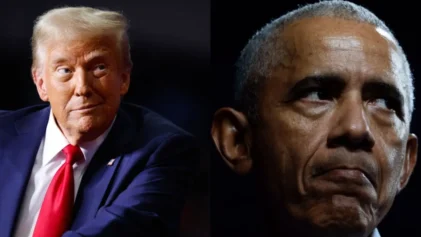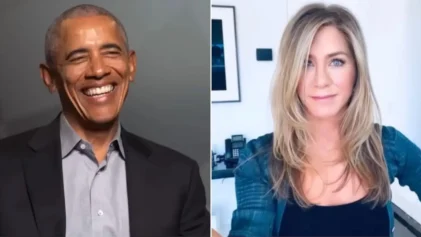In a speech yesterday to memorialize the dozen people killed by an unhinged gunman at the Washington Navy Yard, President Obama once again waxed eloquent about gun violence in the U.S. Obama said he senses “a creeping resignation” that homicidal lunacy like that at the Washington Navy Yard “is somehow the new normal”—but it is clear policymakers in the Capital have no interest in doing anything about gun violence, no matter how many speeches the president makes.
“We cannot accept this,” Obama said of the Sept. 16 attack that killed a dozen people, plus gunman Aaron Alexis, at the Navy Yard. “As Americans bound in grief and love, we must insist here today there’s nothing normal about innocent men and women being gunned down where they work.”
“By now . . . it should be clear that the change we need will not come from Washington, even when tragedy strikes Washington,” he said. “Change will come the only way it ever has come, and that’s from the American people.”
As a kind of pre-emptive strike against any talk of gun control, the gun lobby fanned out across the Sunday morning talk shows to once again make the case for guns.
On “Meet the Press,” Wayne LaPierre, head of the National Rifle Association, said that in the case of the Navy Yard shooting, too many people at the facility were unarmed.
“All these brave men and women that are trained in firearms, that signed up to serve in the military, they’re largely disarmed on our military bases,” LaPierre said. “The problem is, there weren’t enough good guys with guns. When the good guys with guns got there, it stopped.”
It is the same argument he made after December’s shooting in Newtown, Conn., when he said there should be more armed guards in our nation’s schools.
“Once more our hearts are broken,” he said. “Once more we ask why.”
As he shared personal details about each of the Navy Yard victims, the president said, “These are not statistics. They are the lives that have been taken from us. This is how a single act of violence can ripple.
“A husband lost his wife. Wives have lost their husbands. Sons and daughters have lost their moms and their dads. Little children have lost their grandparents. Hundreds in our communities have lost a neighbor. And thousands here have lost a friend.”
Echoing Obama, D.C. Mayor Vincent Gray told the gathering that “our country is drowning in a sea of guns . . . Senseless violence like this is an all-too-everyday fact of life here in the District and in our nation’s other big cities. It is a fact of life that we must stop accepting.”
“These families have endured a shattering tragedy. It ought to be a shock to us all,” he said. “It ought to obsess us. It ought to lead to some sort of transformation.”
“I do not accept that we cannot find a common sense way to preserve our traditions, including our basic Second Amendment freedoms and the rights of law-abiding gun owners while at the same time reducing the gun violence that unleashed so much mayhem on a regular basis.”


